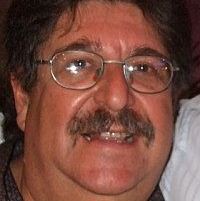Lifestyle/Community
Changing world forces change to Maccabi
Through financial considerations, especially the weak rand, Maccabi SA has to reinvent itself and change emphasis, thinking beyond the Maccabi Games.

JACK MILNER
The Maccabi World Union has played a massive role in Jewish life all over the world. South Africa has been closely tied to the organisation since the early days and in fact, was among the 18 countries to send participants to the first Games in Tel Aviv in 1932, when a total of 400 athletes competed.
In 1935 South Africa sent its first official delegation to the second Maccabiah which was attended by athletes from 26 countries.
The SA team comprised only 19 members, but they still managed to come away with 10 medals.
In 1950 – now in the State of Israel – South Africa sent a far bigger contingent. Among the soccer players were local greats such as Morrie Jacobson, Hymie Klonner and a member of the legendary Jewish soccer family, Phil Snoyman. A young Abe Segal was in the tennis team.
The Maccabiah, and along with it local interest, grew with every new event. With it the list of leading South African Jewish sportsmen increased. Abe Segal went back to win the singles and double gold medal. Ian Froman, who was later acknowledged as the father of Israeli tennis, played in the 1961 team. Cecil Bransky (bowls), Lawrence Seeff (cricket and soccer), Adam Bacher (cricket), Ilana Kloss, Sid Gordon, Julian Krinsky, David Schneider, Earl Grainger, Brian Levine, Howard Herr, David Nainkin (tennis), Carmel Goodman (swimming), Malcolm Dorfman (karate), Mandy Yachad (hockey) and Richard Kaplan (golf), were just a few of the country’s leading sportsmen and women who formed part of the Maccabi SA team.
There were certain sports that were not represented, but some athletes, better known in other sporting fields, still attended the Maccabiah. Cricketer Dennis Gamsy was a member of the 1961 soccer team, although cricket was later introduced and he played for SA at the 1973 Games, while rugby Springbok Okey Geffin played in the bowls team.
Much changed in 1985 when junior teams were introduced and the delegations started to increase dramatically. Over the same period South Africa was barred from all competition by the International Olympic Committee and as the Maccabi Games fell under IOC auspices, Maccabi World Union had to follow suit.
However, South Africans were allowed to participate, but actually as a “no-brand” delegation.
In 1993 SA returned to the fold and the teams began to grow. Then, in 2001, the Maccabiah was called off because of the Intifada, but between the Israelis and the Americans it was rescued at the last minute, although it was shortened to just over one week.
In 2005 Maccabi SA took a record size team, but a few cracks began to appear. The rand was unstable and with costs going up all the time, team members were asked to pay in an extra amount over and above the original stipulated amount, to cover additional costs.
It put a lot of pressure on the coffers of Maccabi SA and in 2009, with costs skyrocketing, the team size had to be reduced.
During SA’s isolation period, events like the Maccabi Games took massive pride of place along with many of the international sporting events, such as the rugby and cricket Currie Cups. But with South Africa getting back into the international arena, Maccabi now has massive competition. The better sportsmen would rather use their money to attend a world championship in their respective sports.
“The cost to attend the Maccabiah is determined in dollars and with the rand at its current rate, only a small number of athletes can afford to go to the Games,” says Maccabi SA Chairman Cliff Garrun. “We are still hopeful we will have a delegation of sorts.”
The second question is: Where are all the great South African Jewish sportsmen? Their numbers have dwindled with many Jews emigrating and with local teams affected by racial quotas.
While Garrun acknowledges the Maccabiah is still “the jewel in the crown”, he and his committee have realised that for Maccabi to survive in South Africa, it could not purely rely on the Maccabi Games.
“There is still some symbolism surrounding the Maccabi Games. It’s the Zionist affirmation for people living in the Diaspora,” said Garrun.
“I would like to think our relevance has changed in recent years. For the first time in more than 25 years we have a fulltime sports director in Alain Nathan. We have around 2 200 people participating in sports locally. Every weekend we have kids competing in netball and soccer.
“We have introduced mountain biking into our curriculum. Maccabi Bowls has another tournament coming up later, the second this year. Regular tennis clinics are going on under Byron Werberloff. Golfers are still very active and we have 300 to 400 kids playing in cricket tournaments.”
“We now have a completely different model and our priority is to engage with the community. Our primary market is Jewish day schools; we offer different options to them.”
With this in mind Maccabi SA is in the process of planning a whole relaunch which will include rebranding and a whole new website. “We have a cohesive and ambitious leadership and we need to play a positive role in the community. The political landscape has changed and we needed to rethink our function.”
However, Garrun does not see South Africa going the way of the Maccabi clubs in Europe and participating in regular provincial and national tournaments. “They play in secular leagues and that means participating on Saturdays. That won’t wash in our community. We have our limitations. We are members of the Zionist Federation and all our events are compliant.”